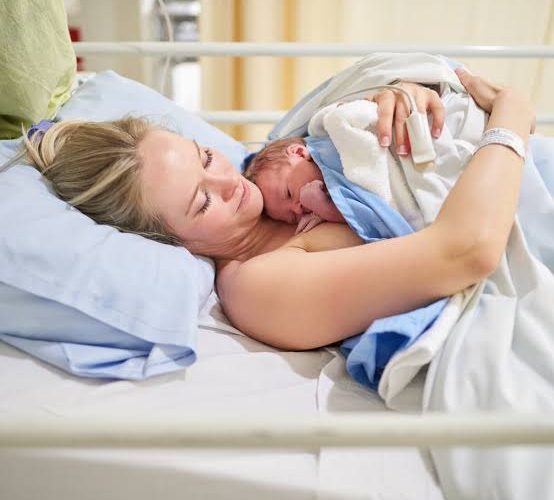The miracle of childbirth is a life-changing experience for women. After going through the physical and emotional journey of pregnancy and childbirth, most women look forward to a period of rest and recovery before considering another pregnancy. However, there are cases where some women become pregnant again within a few weeks or months of giving birth. According to healthline, This phenomenon, known as “pregnancy spacing,” may raise questions and curiosity about the reasons behind it. In this article, we will explore the factors that contribute to women getting pregnant immediately after childbirth and discuss the potential implications for their health and family planning.
Resumption of Ovulation and Fertility:
According to webmd, One of the primary factors that contribute to getting pregnant soon after childbirth is the resumption of ovulation and fertility. While breastfeeding can suppress ovulation and delay the return of fertility for some women, it is not a foolproof contraceptive method. The time it takes for ovulation to resume varies among individuals, and some women may experience ovulation as early as a few weeks after childbirth. If unprotected intercourse occurs during this time, pregnancy can result.
Lack of Contraceptive Use:
In some cases, women may become pregnant soon after childbirth due to a lack of contraceptive use. It could be a result of misinformation, limited access to contraception, or a personal decision to forgo contraception temporarily. This may occur when couples underestimate their fertility immediately after childbirth or believe that breastfeeding alone provides sufficient protection against pregnancy.
Irregular Menstrual Cycles and Misjudgment of Fertility:
The return of regular menstrual cycles after childbirth can be unpredictable. Women may experience irregular cycles or experience anovulatory cycles, where ovulation does not occur. This irregularity can make it challenging to accurately judge their fertility and increase the risk of unintended pregnancies. Some women may assume that their fertility has not returned or miscalculate the timing of ovulation, leading to conception soon after childbirth.
Desire for Sibling Spacing or Family Planning:
Family planning choices and desires for sibling spacing play a significant role in determining when some women choose to have another child. Factors such as cultural norms, personal preferences, and socioeconomic considerations influence the decision-making process. Some women may intentionally aim for shorter inter-pregnancy intervals to have children close in age or achieve their desired family size within a specific timeframe.
Psychological and Emotional Factors:
The emotional and psychological changes that accompany motherhood can vary among women. While some women may feel overwhelmed and need time to adjust to their new roles, others may embrace motherhood and desire to expand their family soon after giving birth. Factors such as maternal age, prior childbirth experiences, personal goals, and support systems can influence the decision to become pregnant again quickly.
Implications and Considerations:
While it is possible for some women to conceive soon after childbirth, there are important considerations and potential implications to keep in mind:
a) Physical Health: Pregnancy and childbirth can place significant demands on a woman’s body. Short inter-pregnancy intervals may increase the risk of maternal nutritional deficiencies, anemia, and inadequate recovery time. Adequate prenatal care and attention to overall health become crucial in such cases.
b) Emotional and Mental Well-being: Closely spaced pregnancies can impact a woman’s emotional well-being, as it may require managing the demands of multiple young children simultaneously. Women should consider their emotional readiness and ability to provide adequate care and attention to each child before deciding to conceive again.
c) Contraceptive Options and Family Planning: Education and access to reliable contraceptive methods are essential for women and couples to make informed decisions about family planning. Healthcare providers should offer comprehensive counseling and discuss the available contraceptive options suitable for each woman’s individual circumstances.
d) Support Systems: The support systems available to women, including partners, family, and community, play a vital role in their ability to navigate the challenges of closely spaced pregnancies. Ensuring the availability of emotional, physical, and social support can greatly impact the well-being of both the mother and the children.
The decision to conceive soon after childbirth is a deeply personal one influenced by various factors such as fertility, desire for sibling spacing, cultural norms, and family planning considerations. While some women may choose to have another child quickly, it is crucial to consider the potential implications on physical health, emotional well-being, and family dynamics. Open discussions about family planning, access to contraceptives, and comprehensive healthcare are essential to support women in making informed choices that align with their goals and overall well-being. Ultimately, every woman’s journey is unique, and decisions regarding pregnancy timing should be made based on individual circumstances, preferences, and the guidance of healthcare professionals.
jacobE (
)











